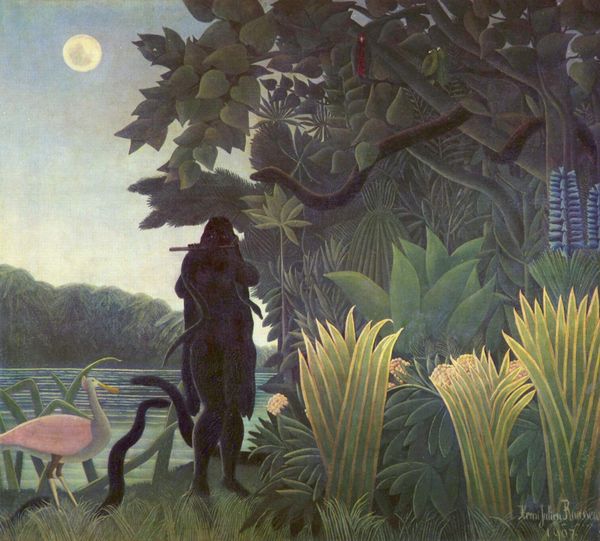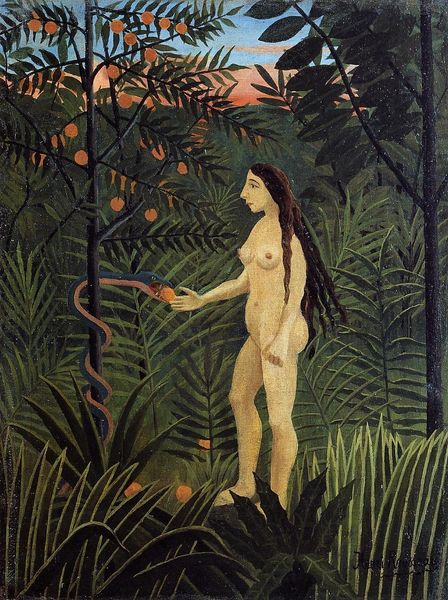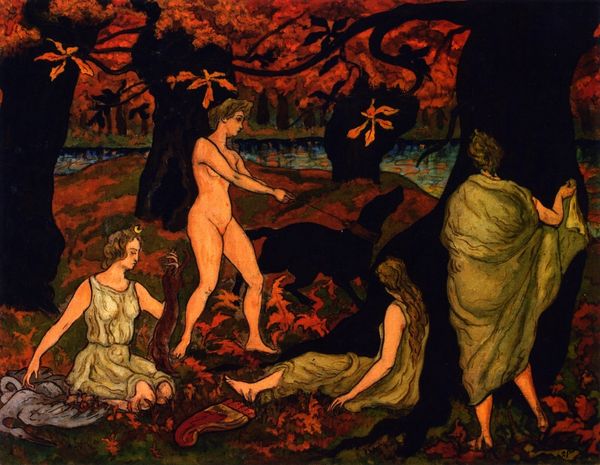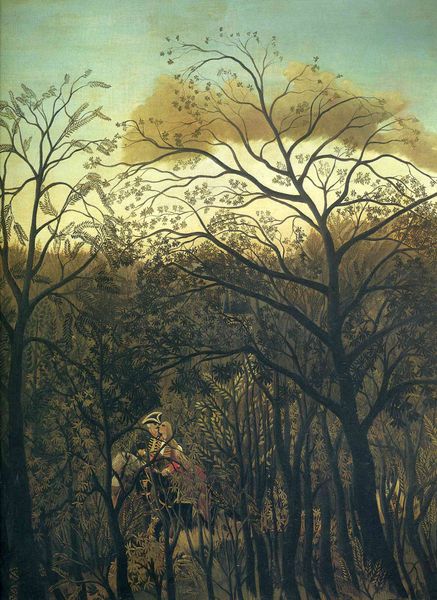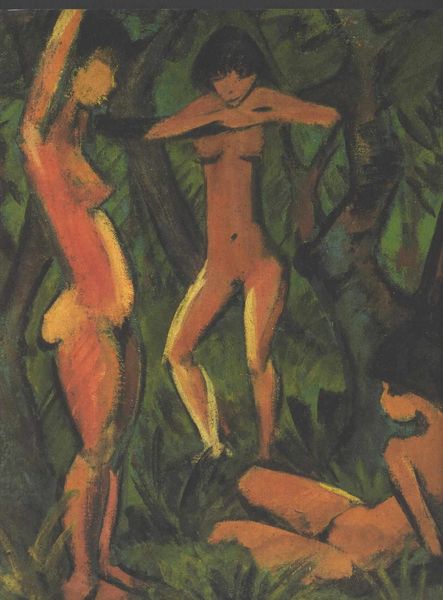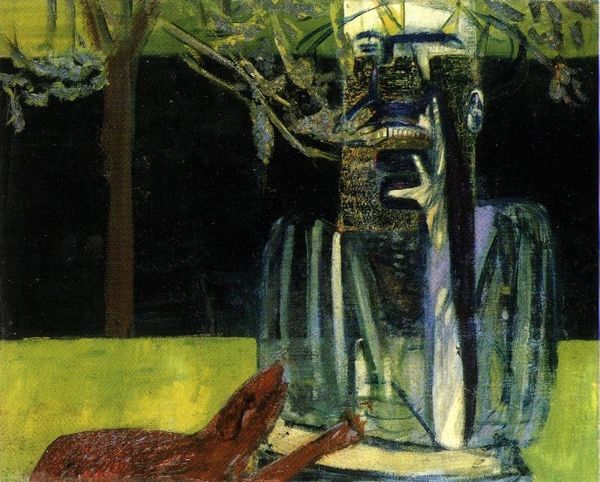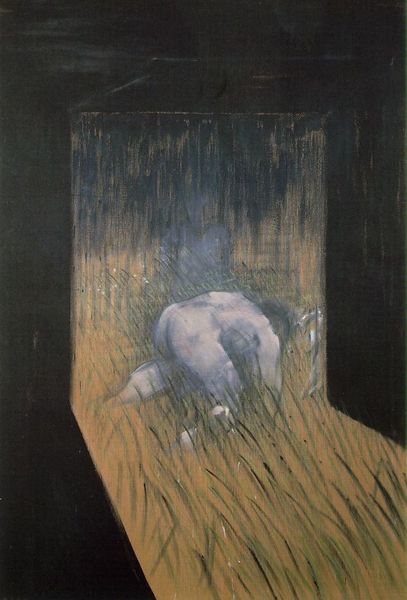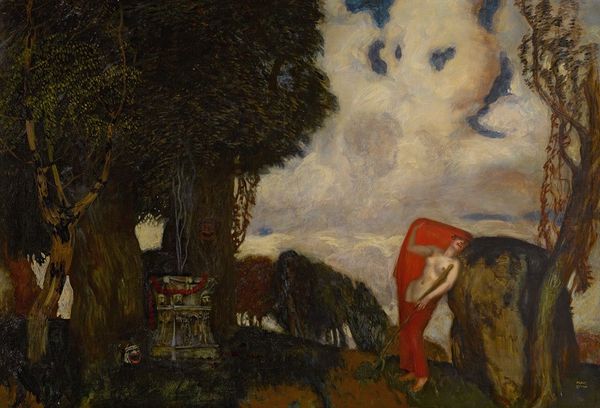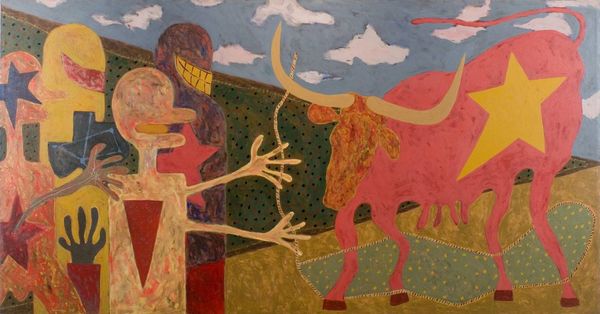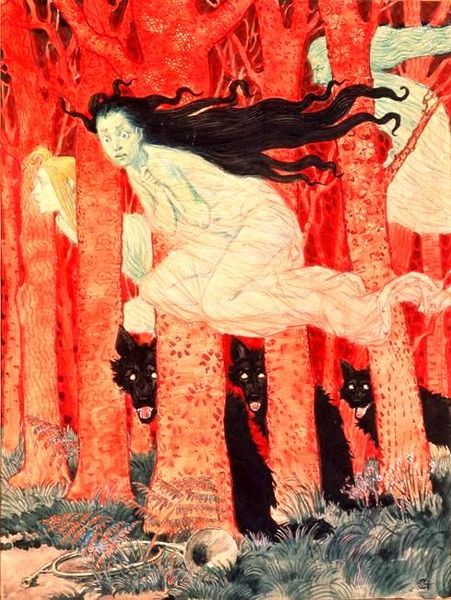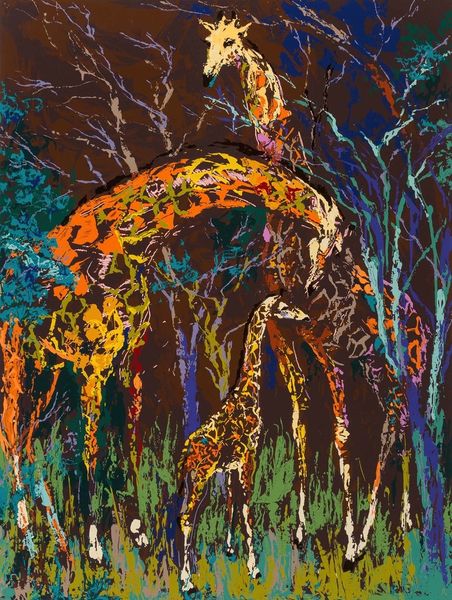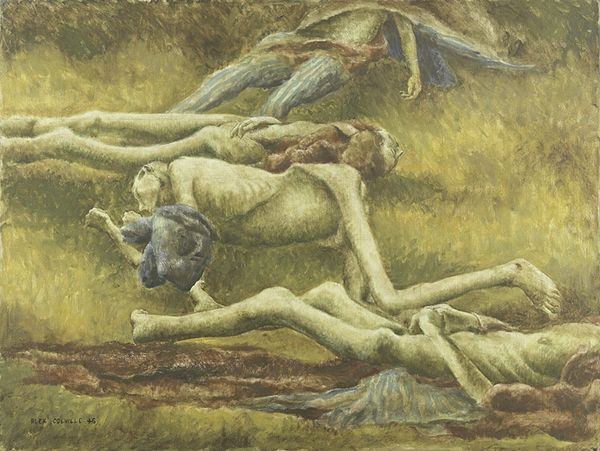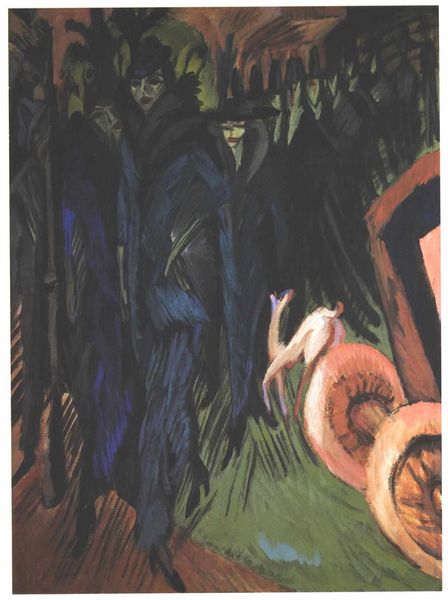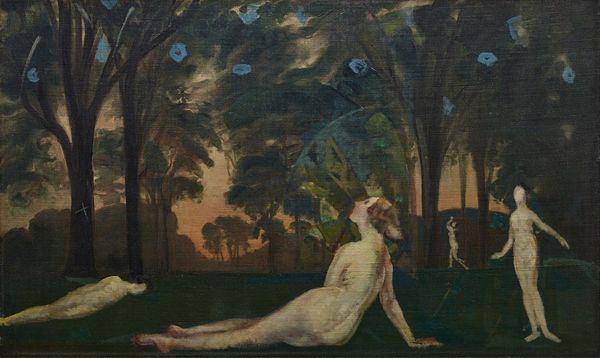
painting, oil-paint
#
tree
#
african-art
#
painting
#
oil-paint
#
landscape
#
figuration
#
naive art
#
realism
Copyright: Public domain
Curator: What grabs me first about Horace Pippin's "Zachariah," painted in 1943, is how stark the figures are against this almost theatrical backdrop. It's like a stage, with these looming trees... What do you see right away? Editor: That’s interesting… “theatrical” feels spot on. I was going to say chilling, but it's the tension of a staged drama that holds it. There's a story happening right now and something bad clearly just happened and the palette amplifies everything. Why "Zachariah," I wonder? Curator: It's a biblical reference, from the Gospel of Luke. Zachariah was struck dumb for doubting an angel's prophecy about his son, John the Baptist. This painting presents the moment his speech returns. Consider how Pippin, a self-taught artist, crafts this scene from his unique worldview. Editor: Absolutely. The backdrop feels both literal and symbolic; the trees acting as watchful sentinels but are sparse, bare… I also can’t help but think about race and seeing how the scene might evoke notions about black trauma with some echoes of the Good Samaritan. The historical context of its creation, during World War II, must amplify any message about silence or divine intervention, you know? How did the artist’s lived experiences come into play? Curator: Pippin, as a Black artist and a veteran wounded in World War I, likely found resonance in the themes of faith, trauma, and redemption. He depicts the scene with a flattened perspective and strong contrasts, characteristic of his folk art style. We're getting raw emotion rendered through a specific, highly individualistic lens. Editor: Yes, absolutely the emotional intensity of color that he uses seems very specifically rendered but without being sentimental in any way and I notice it creates a beautiful texture somehow that enhances and also slightly obscures this feeling... Almost hides behind itself to emphasize these characters but keeping a secret close. Curator: I think "Zachariah" presents a space for questioning as it intermingles the personal, spiritual, and historical. It demands engagement, contemplation of both artistic merit and social narrative, all framed within such intimacy, which makes viewing so unique. Editor: And as we wrestle with these dialogues, the painting leaves a very lasting impression of an enigma that speaks even as it keeps us guessing. That it feels so self-possessed is so moving.
Comments
No comments
Be the first to comment and join the conversation on the ultimate creative platform.
